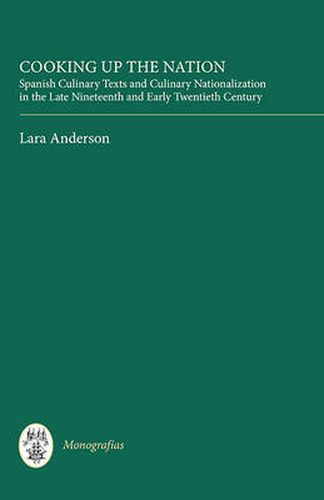Readings Newsletter
Become a Readings Member to make your shopping experience even easier.
Sign in or sign up for free!
You’re not far away from qualifying for FREE standard shipping within Australia
You’ve qualified for FREE standard shipping within Australia
The cart is loading…






This book looks at the textual attempts to construct a national cuisine made in Spain at the turn of the last century. At the same time that attempts to unify the country were being made in law and narrated in fiction, Mariano Pardo de Figueroa (1828-1918) and Jose Castro y Serrano (1829-96), Angel Muro Goiri (1839 - 1897), Emilia Pardo Bazan (1851-1921) and Dionisio Perez (1872-1935) all tried to find ways of bringing Spaniards together through a common language about food. In line with this nationalist goal, all of the texts examined in this book contain strategies and rhetoric typical of nineteenth-century nation-building projects. The nationalist agenda of these culinary textscomes as little surprise when we consider the importance of nation building to Spanish cultural and political life at the time of their publication. At this time Spaniards were forced to confront many questions relating to their national identity, such as the state’s lackluster nationalizing policies, the loss of empire, national degeneration and regeneration and their country’s cultural dependence on France. In their discussions about how to nationalize Spanish food, all of the authors under consideration here tap into these wider political and cultural issues about what it meant to be Spanish at this time.
Lara Anderson is Lecturer in Spanish Studies at the Universityof Melbourne.
$9.00 standard shipping within Australia
FREE standard shipping within Australia for orders over $100.00
Express & International shipping calculated at checkout
This book looks at the textual attempts to construct a national cuisine made in Spain at the turn of the last century. At the same time that attempts to unify the country were being made in law and narrated in fiction, Mariano Pardo de Figueroa (1828-1918) and Jose Castro y Serrano (1829-96), Angel Muro Goiri (1839 - 1897), Emilia Pardo Bazan (1851-1921) and Dionisio Perez (1872-1935) all tried to find ways of bringing Spaniards together through a common language about food. In line with this nationalist goal, all of the texts examined in this book contain strategies and rhetoric typical of nineteenth-century nation-building projects. The nationalist agenda of these culinary textscomes as little surprise when we consider the importance of nation building to Spanish cultural and political life at the time of their publication. At this time Spaniards were forced to confront many questions relating to their national identity, such as the state’s lackluster nationalizing policies, the loss of empire, national degeneration and regeneration and their country’s cultural dependence on France. In their discussions about how to nationalize Spanish food, all of the authors under consideration here tap into these wider political and cultural issues about what it meant to be Spanish at this time.
Lara Anderson is Lecturer in Spanish Studies at the Universityof Melbourne.